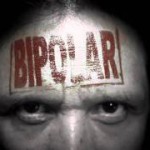The Guardian, By Jamie Doward
May 11, 2013
British psychologists are to say that current psychiatric diagnoses such as bipolar disorder are useless.
There is no scientific evidence that psychiatric diagnoses such as schizophrenia and bipolar disorder are valid or useful, according to the leading body representing Britain’s clinical psychologists.
In a groundbreaking move that has already prompted a fierce backlash from psychiatrists, the British Psychological Society’s division of clinical psychology (DCP) will on Monday issue a statement declaring that, given the lack of evidence, it is time for a “paradigm shift” in how the issues of mental health are understood.
The statement effectively casts doubt on psychiatry’s predominantly biomedical model of mental distress – the idea that people are suffering from illnesses that are treatable by doctors using drugs. The DCP said its decision to speak out “reflects fundamental concerns about the development, personal impact and core assumptions of the (diagnosis) systems”, used by psychiatry.
Dr Lucy Johnstone, a consultant clinical psychologist who helped draw up the DCP’s statement, said it was unhelpful to see mental health issues as illnesses with biological causes.
“On the contrary, there is now overwhelming evidence that people break down as a result of a complex mix of social and psychological circumstances – bereavement and loss, poverty and discrimination, trauma and abuse,” Johnstone said. The provocative statement by the DCP has been timed to come out shortly before the release of DSM-5, the fifth edition of the American Psychiatry Association’s Diagnostic and Statistical Manual of Mental Disorders.
The manual has been attacked for expanding the range of mental health issues that are classified as disorders. For example, the fifth edition of the book, the first for two decades, will classify manifestations of grief, temper tantrums and worrying about physical ill-health as the mental illnesses of major depressive disorder, disruptive mood dysregulation disorder and somatic symptom disorder, respectively.
Some of the manual’s omissions are just as controversial as the manual’s inclusions. The term “Asperger’s disorder” will not appear in the new manual, and instead its symptoms will come under the newly added “autism spectrum disorder”.
The DSM is used in a number of countries to varying degrees. Britain uses an alternative manual, the International Classification of Diseases (ICD) published by the World Health Organisation, but the DSM is still hugely influential – and controversial.
The writer Oliver James, who trained as a clinical psychologist, welcomed the DCP’s decision to speak out against psychiatric diagnosis and stressed the need to move away from a biomedical model of mental distress to one that examined societal and personal factors.



SHARE YOUR STORY/COMMENT